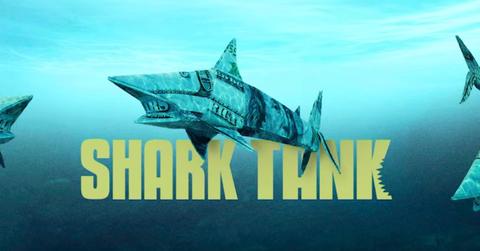‘Shark Tank’ Companies Have an Impressive Success Rate, Data Shows
What percentage of ‘Shark Tank’ companies fail? It’s a smaller portion than you might think. See statistics about the ABC reality show.
March 27 2021, Updated 9:00 a.m. ET
Now in its 12th season, the ABC reality show Shark Tank hasn’t just padded the wallets of its “shark” investors. It has also given national exposure to the business owners pitching their wares, some of whom have million-dollar ideas.
What percentage of Shark Tank companies fail? A smaller portion than you might think. Read on for some Shark Tank statistics, successes, and failures.
What percentage of ‘Shark Tank’ companies fail?
Reporting on data from Inc magazine, the startup newsletter Failory reported in 2020 that only 6 percent of the companies featured between Season 5 and Season 9 of Shark Tank had gone out of business and only 20 percent hadn’t become profitable.
In 2016, Forbes chimed in with its own Shark Tank stats and found that 27 percent of the contestants interviewed saw their deal stay the same after the show, 30 percent saw their deal change, and 43 percent saw their deal fall apart. Grooming accessories company Beard King had its Shark Tank deal fall apart, but the show still made sales soar. “I think that [Shark Tank is] absolutely amazing,” co-founder Nicholas Galekovic told the magazine. “For anyone considering trying out or going for it: It’s well worth it.”
How many ‘Shark Tank’ companies get deals?
Data collected by Halle Tecco and published on The Hustle in 2019 revealed that 56 percent of Shark Tank contestants by that point had successfully made deals—with an average deal of $286,000 and an average of 27 percent equity given up. The data also showed that although women were more likely than men to secure deals (60 percent versus 53 percent), they were still underrepresented on the show (24 percent versus 60 percent) and were offered smaller deals on average.
Interestingly, the sharks started making more deals as the show wore on, with 42 percent of contestants getting deals in Season 1 and 68 percent getting deals in Season 10, according to the Hustle data. Mark Cuban had both the most deals (151) and the most money invested ($33.6 million). Meanwhile, Robert Herjavec had the biggest average investment ($380k), Daymond John had the highest average equity (34 percent), and Lori Greiner had the highest average valuation ($2.7 million).
Biggest ‘Shark Tank’ failures and successes
Showbiz CheatSheet listed 10 of the biggest Shark Tank failures in 2020. As the site reported, the cake ball company Sweet Ballz dissolved amid legal issues, the push-up machine company Body Jac lost its shark’s $50,000 investment, the soap company You Smell rejected its shark’s off-screen deal tweak, and “Netflix of Toys” ToyGaroo went bankrupt a year after receiving its Shark Tank investment.
In better news, Investopedia rounded up the show’s biggest success stories earlier this year, citing the companies’ sales figures. For example, the clothing company Bombas has posted $225 million in sales, sponge company Scrub Daddy made $209 million, toilet stool company Squatty Potty is flush with $164 million in sales, and exercise equipment maker Simply Fit Board has made $160 million.


